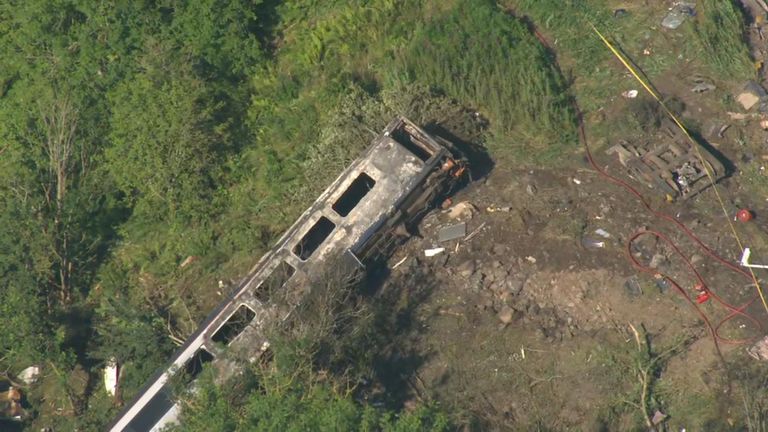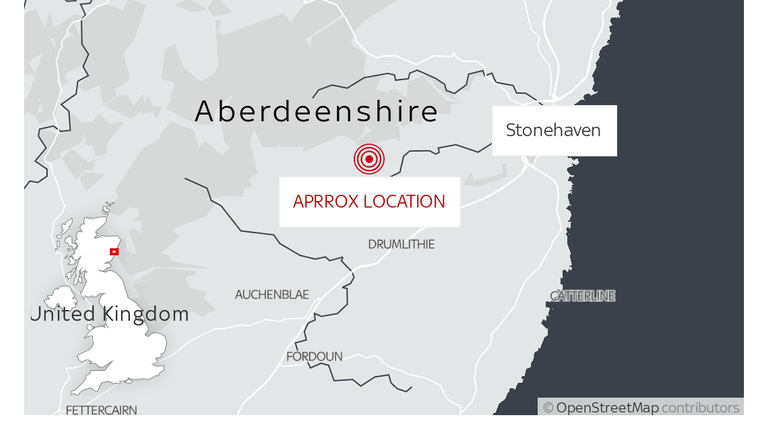Network Rail was warned about not keeping up with extreme weather events four weeks before the deadly train derailment in Aberdeenshire.
Three people have died and six others were taken to hospital after the service from Aberdeen to Glasgow Queen Street came off the tracks near Stonehaven on Wednesday.
It is not yet clear why the train derailed, although rail industry sources told PA news agency that the suspected cause was a landslip.
An annual health and safety report by the Office of Rail and Road (ORR) last month noted a spike in landslips on Britain's railways, demonstrating the "vulnerability" of the network.
It also said there were six times more flooding events in 2019-20 than during the previous 12 months.
Advertisement
The ORR criticised Network Rail for "not keeping up with the frequency and severity of these events" in its plans to address climate change and extreme weather.
"The last year saw significant increases in flooding, earthwork failures and trains striking trees on the line, which had a big impact on the number of delays on the network," HM chief inspector of railways Ian Prosser said at the time.
More from Scotland
"It is so important that the sector employs best practice if we are to meet all the pressures on the network in the future and to make sure the railway plays its full role on climate change and reducing carbon emissions."
Responding to the report, Network Rail said its network was designed for a temperate climate and has been "challenged" by longer periods of high and low temperatures, storms and floods.

"Our climate is changing and we're seeing more and more of these types of incidents," it said. "We are acutely aware they must be addressed and we have drawn up comprehensive plans to do so.
"There is no quick fix but we will continue to review the way the railway operates in extreme weather and build resilience into all of our plans."
There was heavy flooding across Aberdeenshire on Wednesday, and at 9.49am Network Rail Scotland posted a video of a landslip and flooding on rail tracks at Carmont – which is believed to be near the scene of the incident.

"At Carmont, we've had reports of a landslip, which means services can't operate between Dundee & Aberdeen," Network Rail Scotland wrote on Twitter.
It is not clear whether the landslip is directly related to the derailment.
The government has also pointed to concerns about flooding and landslips.
Ross Moran, head of operations delivery for Network Rail, said: "We really need to take the time to understand exactly what caused this event.
"The railway is an exceptionally safe mode of travel, but we jusRead More – Source
[contf]
[contfnew]

sky news
[contfnewc]
[contfnewc]





